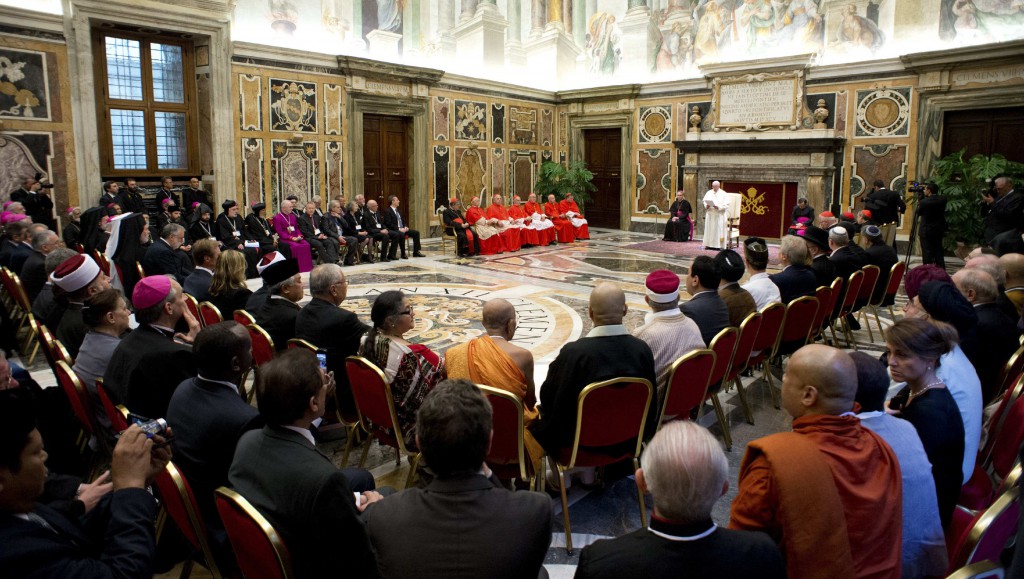
By Cindy Wooden
Peace is so difficult to find because men and women struggle to stop focusing on their own interests long enough to listen to and learn from others, Pope Francis said.
“In the world, in societies, there is little peace because dialogue is lacking; one finds it difficult to move out of the narrow horizon of one’s own interests in order to open up to a real and sincere encounter,” Pope Francis said Sept. 30.
Just four days before he was scheduled to travel to the birthplace of St. Francis of Assisi, Pope Francis met with religious, political and cultural leaders from around the world who were continuing the dialogue Blessed John Paul II began with his interreligious peace gathering in Assisi in 1986.
The Assisi gathering 27 years ago “should not and could not be an isolated event,” Pope Francis told the leaders — Catholic, Orthodox, Anglican, Protestant, Jewish, Muslim, Hindu, Sikh, Buddhist and others — gathered Sept. 29-Oct. 1 for the annual interreligious peace meeting sponsored by the Rome-based Community of Sant’Egidio.
“We can never be resigned in the face of the pain of entire peoples who are hostages of war, poverty and exploitation,” Pope Francis said. “We cannot stand by, indifferent and impotent, before the drama of children, families and the elderly struck by violence. We cannot allow terrorism to imprison the hearts of a few violent people,” bringing pain and death to many.
Pope Francis told the leaders that everyone has a responsibility to contribute to peace through their prayers and their actions, but for religious leaders that obligation is absolute because “the commandment of peace is deeply inscribed in the religious traditions we represent.”
“Each one of us is called to be a peacemaker, uniting and not dividing, extinguishing hatred and not maintaining it, opening paths to dialogue and not building new walls,” the pope said.
Peace requires a process of dialogue that is “tenacious, patient, strong and intelligent,” he said, and it refuses to give up no matter what happens.
“Dialogue helps people of different generations — who often know nothing about each other — live together,” he said. “Dialogue helps citizens of different ethnic origins and different convictions live together.”
Pope Francis said willingness to dialogue with others must grow and spread “to people of every condition and conviction as a network of peace that protects the world and those who are weakest.”
Ending his remarks with a prayer that God would sustain all peacemakers, the pope also prayed “for peace in the world, for peace in Syria, the Middle East and in many countries around the world” and for renewed hope among those suffering from the effects of war and among young people who are worried about their futures.